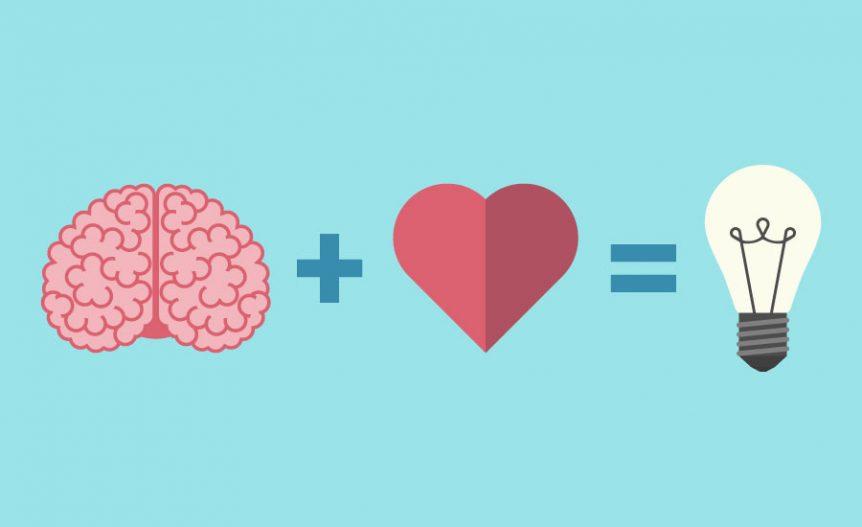The Role of Emotional Intelligence in Project Management
Managing a project successfully requires clear communication, accurate planning, proactive risk assessment, among many, many other key factors. But the core of any successful project lies in the people: our teams, stakeholders, and ourselves. As project managers, we often focus on processes and methodologies but the role of Emotional Intelligence is often overlooked, despite its proven significance in leadership and team dynamics.
Emotional Intelligence isn't just recognising emotions; it's actively managing them to keep teams united and driven, especially during challenges.

Understanding Emotional Intelligence
Expert in psychology Daniel Goleman lists the following five components of emotional intelligence: Self-awareness, Self-regulation, Motivation, Empathy, and Social skills. These elements work synergistically to improve leadership effectiveness, fostering a conducive environment for project execution:
Self-awareness: The ability to recognise and understand personal moods and drives, as well as their effect on others.
Self-regulation: The capacity to control or redirect disruptive impulses and moods, thinking before acting.
Motivation: A passion to deliver your project and a propensity to pursue goals with energy and persistence.
Empathy: The skill to understand others' emotions is an essential trait in managing and building relationships.
Social skills: The knack of managing relationships and building networks, the ability to find common ground and build rapport.
Emotional Intelligence in Project Management
While it's useful to know the theory behind Emotional Intelligence, it's the practical side that makes all the difference in project management. Here's how each component of Emotional Intelligence can be directly applied:
Self-awareness: Recognising when we're stressed or frustrated is essential and even more critical is ensuring these emotions don't influence team interactions.
Self-regulation: When faced with unexpected challenges or setbacks, the immediate reaction might be to vent. But in the project management world, it pays to pause. Evaluating situations calmly, brainstorming solutions, and consulting with the team before reacting can lead to more efficient outcomes.
Motivation: A project manager's enthusiasm sets the tone for the team. By showing real dedication and encouraging rather than pressuring, a project manager can drive the team to deliver outstanding results.
Empathy: Understanding the individual dynamics, needs, and emotions of team members is vital. If someone's performance dips due to personal reasons, offering support and making workload adjustments can boost team morale and loyalty.
Social skills: Engaging with stakeholders is as crucial as guiding the team. Throughout the project lifecycle, communication is key to getting buy-in, fostering trust and above all else, building important relationships.
My Own Example of Emotional Intelligence in Project Management
I vividly recall my last project, a complex compliance initiative that presented a unique set of challenges. As a project manager at Zalando, I've navigated through countless project twists and turns, but this was different. Performance issues cropped up end-of-project — issues that had eluded detection during the testing phase.
One could argue that I did not demonstrate the 'self-awareness' aspect of EI in the initial stages of this crisis. I'm known for my resting face of worry, a habit likely rooted in my lifelong support of Liverpool FC. Regardless of my internal state, whether I'm filled with joy or genuinely concerned, I tend to wear a look of worry on my face. In this situation, my face mirrored the tension and most likely caused more stress to the team.
Embracing 'self-regulation,' I took a step back. I made a conscious effort to alter my demeanour, attempting to adopt a more relaxed and approachable facial expression. My efforts, however, initially resulted in what might have been perceived as a somewhat odd expression, as my face contorted into an unintended look of insanity.
This in itself was a lesson learned. It led me to understand that successfully demonstrating emotional intelligence doesn't mean perfectly hitting all five components at once. It's about a balanced approach, bringing each element into play as the situation demands and not forcing all into every scenario.
I prioritised empathy in my leadership approach. I acknowledged the team's concerns but also re emphasised how close we were to finish the line. I aligned with their respective leads, that they could focus on the project as a priority to help reduce some of the noise.
The 'social skills' component of EI was crucial in navigating through this situation. In order to keep senior stakeholders informed about the situation, I communicated with them everyday until it was rectified. This built trust but also actually resulted in increased support for our team. My 'motivation', which was the team's collective success, drove me to ensure that we didn't lose sight of our ultimate goal amid the chaos.
Despite the significant performance challenges, the project team faced them head-on and by working closely together, they were able to identify the necessary solution, and subsequently ensure the successful completion of the project release. This not only had a positive impact for Zalando as a company but this experience has strengthened already strong relationships within our team.
Developing Emotional Intelligence as a Project Manager
Enhancing emotional intelligence is a continuous process and involves a conscious effort. Here are some practical strategies:
For self-awareness, regular self-reflection helps. Consider using meditation or daily introspection breaks to assess and understand your emotions and reactions.
Self-regulation can be enhanced by practising mindfulness and stress management techniques.
Motivation often comes from setting challenging yet attainable personal goals.
Empathy can be developed through active listening and open-ended questioning. Try to understand things from others' perspective.
For social skills, practise active networking and effective communication.
Conclusion
Emotional intelligence is not a soft skill that project managers can afford to overlook. It bridges the gap between process-driven objectives and human-driven dynamics, helping to ensure that project teams remain motivated and understood. Within project management where collaboration and teamwork are paramount, there is no doubt that Emotional Intelligence is a key differentiator for project success.



